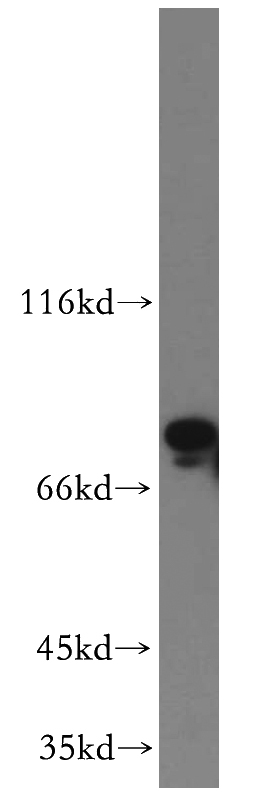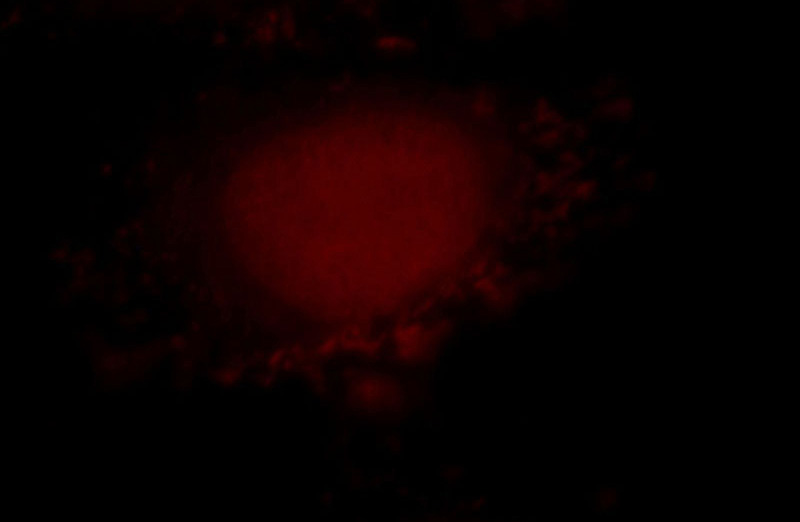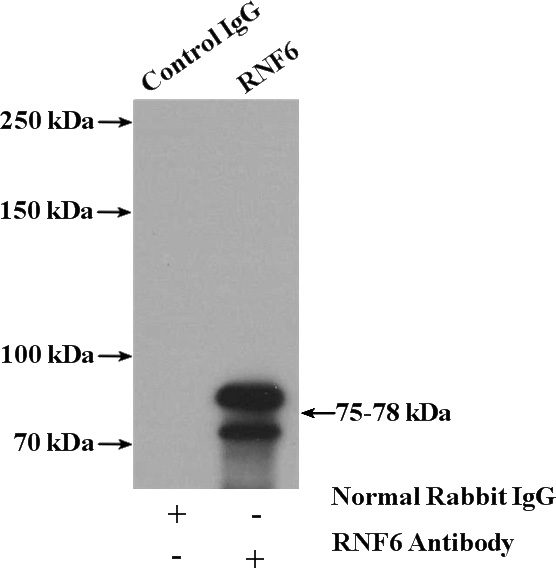-
Product Name
RNF6 antibody
- Documents
-
Description
RNF6 Rabbit Polyclonal antibody. Positive WB detected in mouse testis tissue, PC-3 cells. Positive IP detected in mouse testis tissue. Positive IF detected in HepG2 cells. Observed molecular weight by Western-blot: 78 kDa
-
Tested applications
ELISA, WB, IF, IP
-
Species reactivity
Human, Mouse; other species not tested.
-
Alternative names
DKFZp686P0776 antibody; RNF6 antibody; SPG2 antibody
-
Isotype
Rabbit IgG
-
Preparation
This antibody was obtained by immunization of RNF6 recombinant protein (Accession Number: XM_024449390). Purification method: Antigen affinity purified.
-
Clonality
Polyclonal
-
Formulation
PBS with 0.02% sodium azide and 50% glycerol pH 7.3.
-
Storage instructions
Store at -20℃. DO NOT ALIQUOT
-
Applications
Recommended Dilution:
WB: 1:500-1:5000
IP: 1:200-1:2000
IF: 1:10-1:100
-
Validations

mouse testis tissue were subjected to SDS PAGE followed by western blot with Catalog No:114762(RNF6 antibody) at dilution of 1:800

Immunofluorescent analysis of HepG2 cells, using RNF6 antibody Catalog No:114762 at 1:25 dilution and Rhodamine-labeled goat anti-rabbit IgG (red).

IP Result of anti-RNF6 (IP:Catalog No:114762, 4ug; Detection:Catalog No:114762 1:800) with mouse testis tissue lysate 4000ug.
-
Background
RNF6 was firstly cloned in a genetic study of chromosomal rearrangements in myeloproliferative disorders, mapping to chromosome 13q12.12 [PMID:10331950]. It containing a coiled-coil domain at the N-terminus, and a RING-H2 finger at the C-terminus which is responsible for its ubiquitin ligase activity. It also activate Inha gene expression by participating in a protein complex binding to the promoter region [PMID:11971979]. In addition, LIMK1 is a substrate of RNF6 and the RNF6-induced LIMK1 polyubiquitination is mediated via K48 of ubiquitin and leads to proteasomal degradation of the kinase [PMID:16204183].
Related Products / Services
Please note: All products are "FOR RESEARCH USE ONLY AND ARE NOT INTENDED FOR DIAGNOSTIC OR THERAPEUTIC USE"
